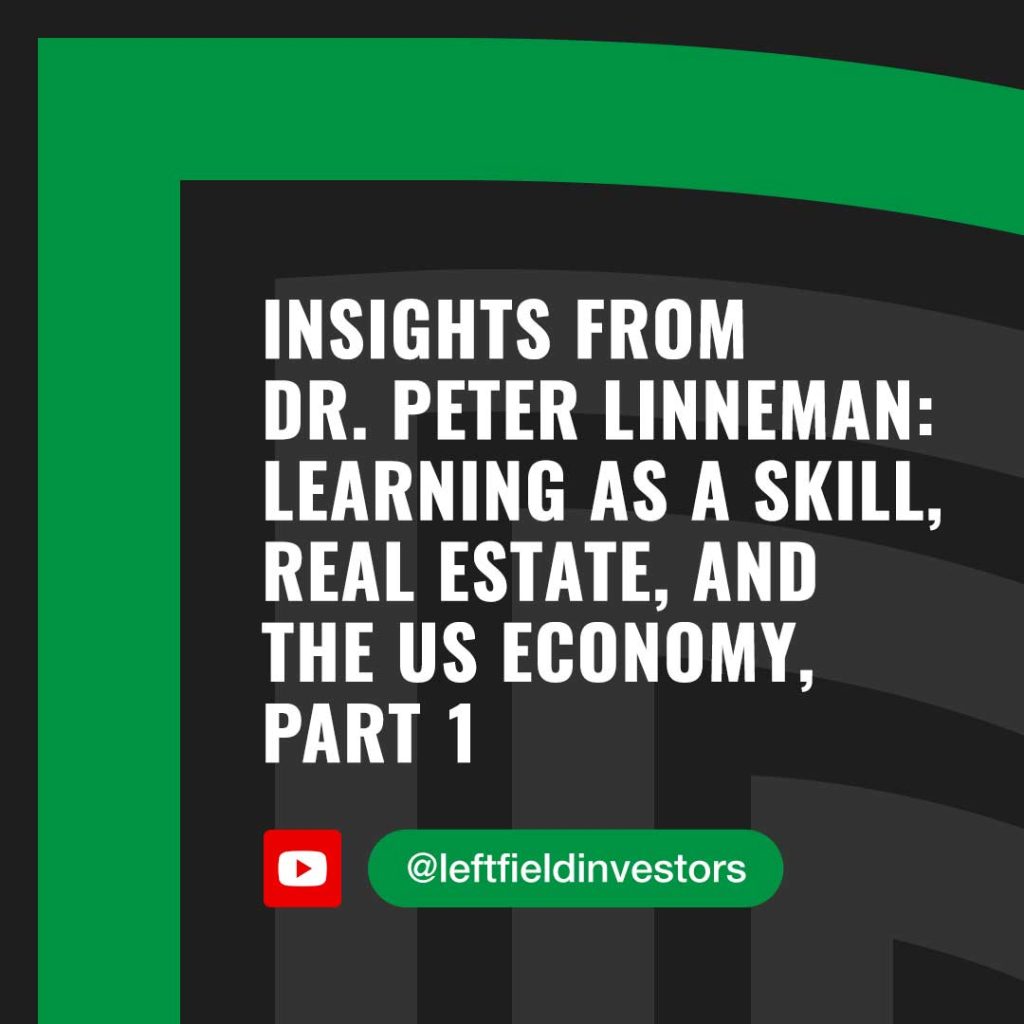Let’s dive into the world of economics and real estate with Dr. Peter Linneman, an accomplished economist and advisor to leading corporations. He shares his insights on finding great mentors, learning as a skill, and navigating the current state of the US economy. With years of experience in providing M&A, analysis, market studies, and feasibility analyses to various companies, Dr. Linneman is highly regarded in the industry and has been serving as an adviser and board member of several public and private companies. Get ready to learn from his wealth of knowledge and expertise in this exciting episode.
About Dr. Peter Linneman
Dr. Peter Linneman holds both master’s and doctorate degrees in economics from the University of Chicago. He is the principal of Linneman Associates. For nearly four decades, he has provided strategic and financial advice to leading corporations through Linneman Associates. He provides M&A, analysis, market studies, feasibility analysis to many leading US international companies. In addition, he serves as an advisor to and a board member of several public and private companies. Peter was a professor of real estate at the Wharton School of Business at the University of Pennsylvania, from 1979 until his retirement in 2011. He’s an accomplished author having written books, articles, and of course, The Linneman Letter, a quarterly letter for commercial real estate investors.
Here are some power takeaways from today’s conversation:
- [02:17] Introduction of Peter Linneman
- [04:07] Early beginnings from a blue-collar background to the real estate industry
- [05:31] Opportunities that arose from networking and doing good work
- [12:13] Importance of being a good student and knowing how to learn
- [16:58] The current state of the economy
- [21:44] The worst thing facing the economy
- [23:50] The Fed’s crazy approach to the economy
Episode Highlights:
[10:07] How to Find Great Mentors
Start by identifying people who have skills and experience that you can learn from. Look for individuals who are willing to share their knowledge and expertise with you. Once you’ve identified potential mentors, show them that you are serious and committed to learning by demonstrating your work ethic and willingness to put in the effort. Don’t be afraid to ask for their guidance and advice. Remember, learning is a skill that requires curiosity and a willingness to seek out new information. Build a relationship with your mentor by communicating regularly and showing appreciation for their time and expertise.
[17:48] The Current State of the Economy
Currently, the US economy is in a state of recovery from the pandemic. Real GDP is at about 2.5% of pre-pandemic levels, indicating that we have grown over the last three years, which is a positive sign. However, employment is still below pre-pandemic levels, and the Fed’s attempt to get rid of employment is misguided.
On the bright side, around two-thirds of homeowners have mortgages with an interest rate that is two to three percentage points lower than the historic norm, giving them more financial freedom. The travel and tourism industry is almost back to pre-pandemic levels, but there is still room for growth in areas such as automobile consumption.
Despite concerns about the amount of debt rolling over, only 25% of corporate and real estate debt rolls over in the next three years, giving businesses some cushion and margin. Overall, there are good things happening in the economy, such as the normalization of supply chains.
[21:44] The Worst Thing Facing the Economy
The biggest challenge facing the economy is the Fed’s belief that their job is to create a recession. This approach is dangerous, and they tend to overreact and be late in their responses. While we have weathered the shutdown of the economy for a year and a half, the current challenge posed by the Fed is something we can overcome.
This show is for entertainment purposes only. Nothing said on the show should be considered financial advice. Before making any decisions, consult a professional. This show is copyrighted by Passive Investing from Left Field and Left Field Investors. Written permissions must be granted before syndication or rebroadcasting.
Resources Mentioned:








